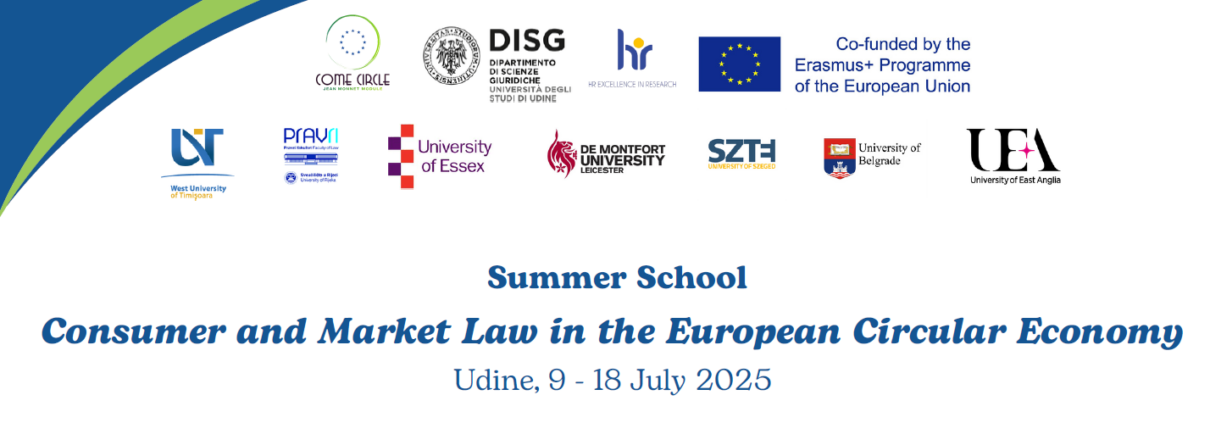Views
International tech litigation reaches the next level: collective actions against TikTok and Google
Written by Xandra Kramer (Erasmus University Rotterdam/Utrecht University) & Eduardo Silva de Freitas (Erasmus University Rotterdam), members of the Vici project Affordable Access to Justice, financed by the Dutch Research Council (NWO), www.euciviljustice.eu.
Introduction
We have reported on the Dutch WAMCA procedure for collective actions in a number of previous blogposts. This collective action procedure was introduced on 1 January 2020, enabling claims for damages, and has since resulted in a stream of (interim) judgments addressing different aspects in the preliminary stages of the procedure. This includes questions on the admissibility and funding requirements, some of which are also of importance as examples for the rolling out of the Representative Action Directive for consumers in other Member States. It also poses very interesting questions of private international law, as in particular the collective actions for damages against tech giants are usually international cases. We refer in particular to earlier blogposts on international jurisdiction in the privacy case against TikTok and the referral to the CJEU regarding international jurisdiction under the Brussels I-bis Regulation in the competition case against Apple.
Turning Point: China First Recognizes Japanese Bankruptcy Decision
This post is written by Guodong Du and Meng Yu and published at China Justice Observer. It is reproduced here by kind permission of the authors.
Key takeaways:
- In September 2023, the Shanghai Third Intermediate People’s Court ruled to recognize the Tokyo District Court’s decision to commence civil rehabilitation proceedings and the order appointing the supervisor ((2021) Hu 03 Xie Wai Ren No.1).
- This marks not only the first time that China has recognized a Japanese court’s decision in a bankruptcy procedure, but also the first time that China has recognized a Japanese judgment.
- The case establishes a legal precedent for cross-border bankruptcy decisions, demonstrating that prior non-recognition patterns between China and Japan in civil and commercial judgments may not apply in such cross-border scenarios.
- While not resolving the broader recognition challenges between the two nations, this acknowledgment sends a positive signal from the Chinese court, hinting at potential future breakthroughs and fostering hope for improved legal cooperation.
Disentangling Legal Knots: Intersection of Foreign Law and English Law in Overseas Marriages
Written by Muhammad Zubair Abbasi, Lecturer at School of Law, Oxford Brookes University (mabbasi@brookes.ac.uk)
Introduction:
In a recent judgment Tousi v Gaydukova [2024] EWCA Civ 203, the Court of Appeal dealt with the issue of the relevance of foreign law to the remedy available under English law in respect of an overseas ceremony of marriage. Earlier the High Court had held that the foreign law determines not only the validity or invalidity of the ceremony of marriage but also the ramifications of the validity or invalidity of the ceremony. The Court of Appeal disagreed and reiterated the rule that lex loci celebrationis is limited to the determination of the validity or invalidity of the ceremony of marriage. Therefore, English law will apply to provide a remedy or relief upon the breakdown of the relationship of the parties to a marriage ceremony that took place abroad.
News
Summer School ‘Consumer and Market Law in the European Circular Economy’
Registration is now open for the Summer School ‘Consumer and Market Law in the European Circular Economy’ which will be held from 9 to 18 July 2025: 9-11 July online and 14-18 July in presence at the University of Udine, Italy.
The Summer School is organised by the University of Udine, in cooperation with a consortium of European universities, including University of Essex, De Montfort University of Leicester, University of West Timisoara, East Anglia University, University of Rijeka, University of Belgrade and University of Szeged, within the framework of the Jean Monnet Module CoME CircLE.
The 2025 Summer School will consist of 40 hours of lectures, a workshop and a moot court. Attendees will be offered a comprehensive training on the legal discipline of consumer protection and market regulation in the EU Law, with a particular reference to circular economy, taking into account the following relevant topics: Consumer protection and empowerment issues; Private international law issues; Dispute resolution and redress issues; and Market regulation.
Eligible are undergraduate students, graduatestudents and PhD students, studing Law, Economics, Political Science or International Relations. Application deadline is 31 May 2025, 12.00 pm GMT. Those who are interested in applying, need to fill in the application form and submit it to ip.europeanlaw.uniud@gmail.com.
For details see the programme and the call for application.
HCCH Monthly Update: March 2025
HCCH Monthly Update: March 2025
Membership
On 5 March 2025, Rwanda deposited its instrument of acceptance of the Statute, becoming the 92nd Member of the HCCH. On the same day, Guatemala applied to become a Member of the HCCH. More information is available here.
The Supreme People’s Court of the People’s Republic of China issued the Notice on Procedural Matters Related to Civil Cases Involving Foreign State Immunity
(This is written by Xiaoxuan Gu, a PhD student in School of Law, University of Macau)
The Foreign State Immunity Law of the People’s Republic of China (CFSIL) took effect on January 1, 2024.[i] To ensure its proper implementation and guide courts nationwide in lawfully and efficiently adjudicating civil cases involving foreign state immunity, the Supreme People’s Court (SPC) formulated supporting procedural rules. On March 26, 2025, the SPC issued the Notice on Procedural Matters Related to Civil Cases Involving Foreign State Immunity (hereinafter the “Notice”), which provides definitive guidance to courts at all levels in handling such novel foreign-related cases.
The Notice stipulates provisions on key procedural matters, including case acceptance criteria, centralized jurisdiction mechanisms, service of process rules, jurisdictional immunity review procedures, and protocols for obtaining evidentiary certifications from the Ministry of Foreign Affairs. Read more



